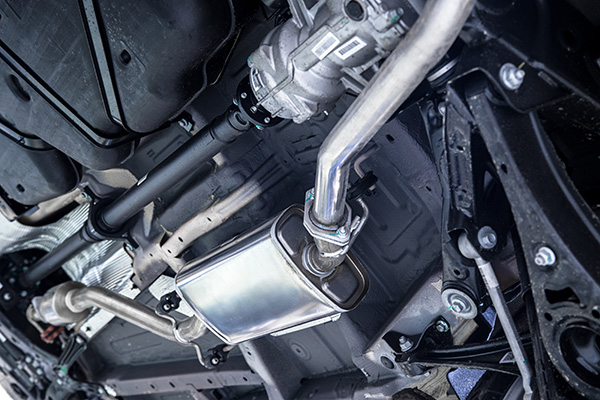
Your car's exhaust system does much more than simply expel fumes. It plays a key role in ensuring that your vehicle operates efficiently. When your exhaust system is in good condition, your car runs smoother, uses less fuel, and releases fewer harmful emissions. But when the exhaust starts to fail, your vehicle's performance can be seriously compromised. We'll explain how a faulty exhaust system can affect your car's performance.
Reduced Fuel Efficiency
One of the most noticeable impacts of a failing exhaust system is reduced fuel efficiency. Your car’s engine relies on a balanced mixture of air and fuel for optimal performance, and the exhaust system ensures this process flows smoothly. When the exhaust system has a leak or blockage, the engine may struggle to expel exhaust gasses, which causes it to burn more fuel than necessary.
If you’ve noticed you're spending more at the gas pump without increasing your driving, your exhaust system could be the culprit. A faulty oxygen sensor or catalytic converter might be throwing off the balance, making your car work harder and use more fuel.
Loss of Power and Acceleration
Have you noticed that your car isn't accelerating as well as it used to? A faulty exhaust system could be the reason. The exhaust helps remove engine gasses, allowing it to "breathe." When exhaust gasses can’t exit the engine properly, back pressure is created, which limits the engine’s ability to perform at full capacity. This lack of power can be especially evident when trying to accelerate quickly or when driving uphill.
Ignoring this issue can make your car feel sluggish and unresponsive, and it could lead to more significant engine problems down the road. So, if your vehicle feels less powerful lately, it’s worth checking the exhaust system.
Unpleasant Sounds and Vibrations
An exhaust system in good condition helps dampen engine noise. When something goes wrong with the system—whether it's a leak, crack, or a damaged muffler—you’ll probably notice louder sounds coming from your vehicle. These sounds can range from hissing to rattling or roaring, and they often get worse over time.
On top of the noise, you might feel unusual vibrations while driving. These vibrations can occur in the steering wheel, gas pedal, or even throughout the entire vehicle, which can affect your driving experience. Vibrations often indicate that the exhaust system is misaligned or there’s a loose component that’s not functioning properly. Ignoring these vibrations can result in further damage, not just to the exhaust but to other parts of your vehicle as well.
Emissions and Environmental Impact
The catalytic converter in your exhaust system is responsible for reducing harmful emissions from your vehicle. When the exhaust system isn’t working properly, your car may release more pollutants into the atmosphere. Not only is this bad for the environment, but it can also cause your vehicle to fail an emissions test, which is required in many areas for vehicle registration.
Beyond legal and environmental concerns, excessive emissions can also mean that your car is burning more fuel than necessary. If your car is emitting black smoke or has a noticeable odor coming from the exhaust, it’s a clear sign that your system needs attention.
Overheating and Engine Damage
A less commonly known effect of a faulty exhaust system is the potential for engine overheating. When gasses can’t escape the engine properly due to a blocked or damaged exhaust, the engine can overheat. Over time, excessive heat can cause internal engine damage, warping essential components and leading to costly repairs.
This can also happen if a failed exhaust system causes your engine to run rich, meaning too much fuel is being used. This unburnt fuel can accumulate in the exhaust system and cause parts like the catalytic converter to overheat and malfunction. If not addressed early, what starts as an exhaust issue can evolve into significant engine damage.
Addressing Exhaust System Problems
If you notice any of the issues above, it's essential to get your car inspected. A faulty exhaust system can start as a minor inconvenience but quickly develop into a major problem. Reduced fuel efficiency, loss of power, strange noises, or increased emissions can all be linked to exhaust issues, and addressing them early can save you money on future repairs.
A faulty exhaust can affect more than just fuel efficiency—it can harm your car’s performance. Don’t wait for the problem to get worse. Let Fuller Automotive handle the diagnosis and repairs to keep your car running at its best!